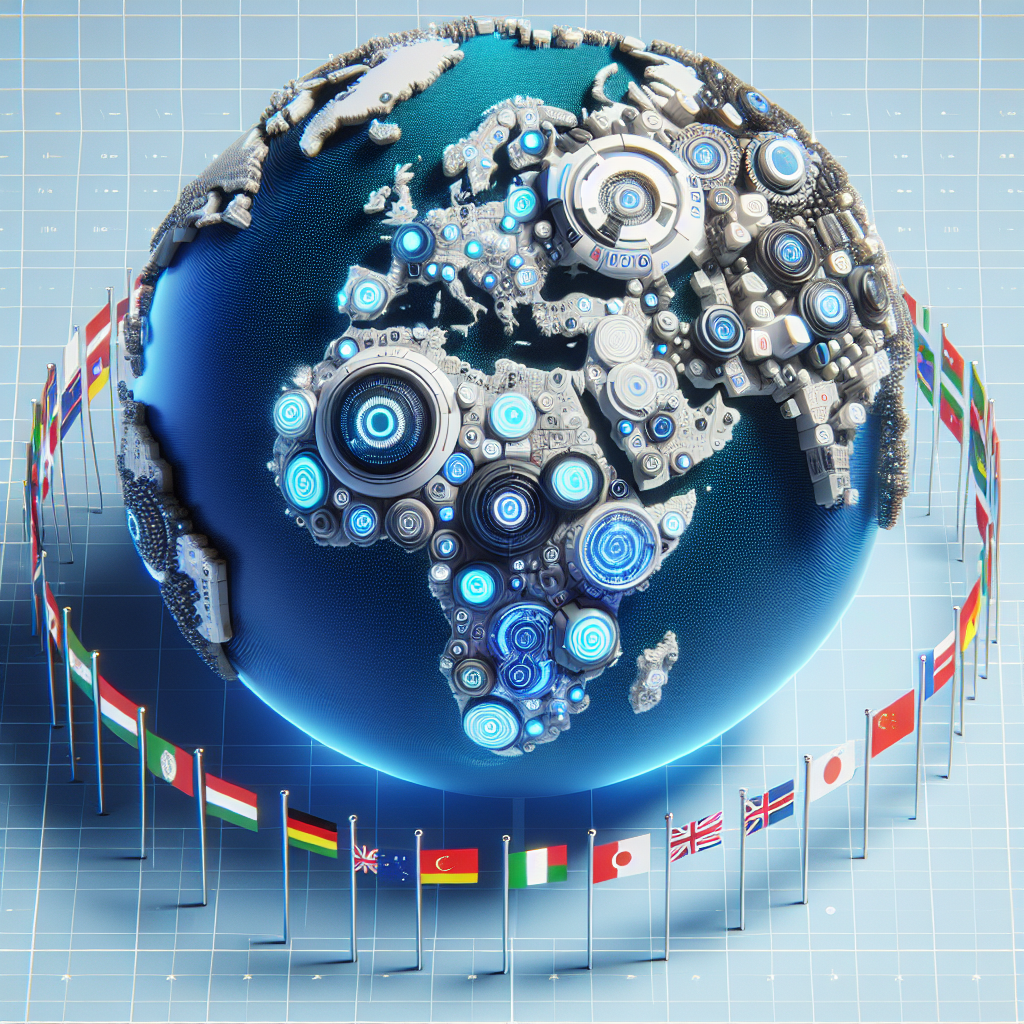The Race for AGI: Who Will Win the Global AI Arms Race?
Artificial General Intelligence (AGI) has been a topic of fascination and speculation for decades. The idea of creating a machine intelligence that can rival or exceed human intelligence has captured the imagination of scientists, researchers, and policymakers around the world. The potential benefits of AGI are immense, from solving complex scientific problems to revolutionizing industries and improving the quality of life for billions of people. However, the development of AGI also presents significant risks, including the possibility of autonomous weapons systems that could be used for malicious purposes.
As a result, the race to develop AGI has taken on a new urgency in recent years, with countries around the world investing heavily in AI research and development. The competition for AGI is not just about technological superiority, but also about economic and strategic advantage. The country that first achieves AGI could potentially dominate the global economy and exert unparalleled influence on the world stage. This has led to fears of a new arms race, with nations vying to be the first to develop AGI and secure their position as a global superpower.
In this article, we will explore the current state of the global AI arms race, the key players involved, and the potential implications of a race for AGI. We will also address some frequently asked questions about AGI and the future of artificial intelligence.
The Key Players in the Global AI Arms Race
The race for AGI is being driven by a handful of countries that have made significant investments in AI research and development. The United States and China are widely regarded as the frontrunners in the race for AGI, with both countries dedicating billions of dollars to AI initiatives. The US has long been a leader in AI research, with major tech companies like Google, Microsoft, and IBM investing heavily in AI projects. China, on the other hand, has made rapid progress in AI in recent years, with the Chinese government launching a national AI strategy and investing heavily in AI research and development.
Other countries, such as Russia, Japan, and South Korea, are also investing in AI research and development, albeit on a smaller scale. Russia has made significant strides in military AI, developing autonomous weapons systems and investing in AI-powered cyber warfare capabilities. Japan is focusing on AI applications in robotics and healthcare, while South Korea is investing in AI-powered industries like manufacturing and logistics.
The Implications of the AI Arms Race
The race for AGI has significant implications for global security, economics, and geopolitics. If one country were to achieve AGI before its rivals, it could potentially gain a decisive advantage in a wide range of areas, from military superiority to economic dominance. This has led to fears of a new arms race, with countries rushing to develop AGI in order to secure their position on the global stage.
One of the biggest concerns surrounding the development of AGI is the potential for autonomous weapons systems. These systems could be used for a wide range of military applications, from surveillance and reconnaissance to target identification and engagement. The use of autonomous weapons systems raises serious ethical questions, as well as concerns about the potential for unintended consequences and the risk of escalation in conflict situations.
Another major concern is the impact of AGI on the global economy. If one country were to achieve AGI before its rivals, it could potentially dominate key industries and markets, leading to economic upheaval and social unrest. This has led to fears of a new wave of automation that could result in widespread job losses and economic dislocation.
Frequently Asked Questions About AGI
Q: What is AGI?
A: AGI, or Artificial General Intelligence, refers to a machine intelligence that can perform any intellectual task that a human can. Unlike narrow AI, which is designed to perform specific tasks, AGI is capable of learning and reasoning across a wide range of domains.
Q: When will AGI be achieved?
A: The timeline for achieving AGI is uncertain, with estimates ranging from a few decades to a few centuries. Some experts believe that AGI could be achieved within the next 50 years, while others believe that it is still a distant prospect.
Q: What are the risks of AGI?
A: The development of AGI presents a number of risks, including the potential for autonomous weapons systems, economic disruption, and social upheaval. There are also concerns about the ethical implications of AGI, including issues related to privacy, security, and accountability.
Q: How can we ensure that AGI is developed safely and responsibly?
A: Ensuring the safe and responsible development of AGI will require a coordinated effort by governments, industry, and civil society. This includes establishing clear guidelines and standards for the development and deployment of AGI, as well as investing in research on the societal impacts of AGI.
In conclusion, the race for AGI is shaping up to be one of the defining challenges of the 21st century. As countries around the world vie for supremacy in AI research and development, the stakes could not be higher. The potential benefits of AGI are immense, but so too are the risks. It is crucial that we approach the development of AGI with caution and foresight, taking into account the ethical, social, and economic implications of this transformative technology. Only by working together can we ensure that AGI is developed in a safe, responsible, and beneficial manner for all of humanity.

